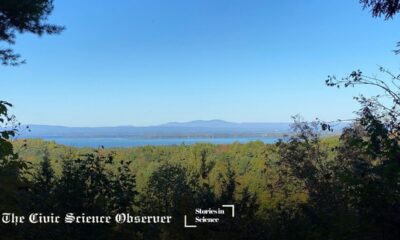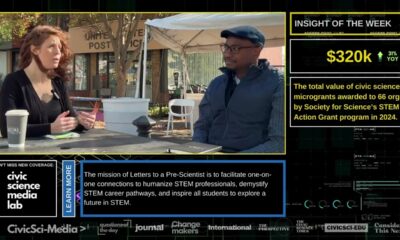Stories in Science Special Series
Academia: My forbidden love?
Divya Shiroor: “As happens with all relationships, my honeymoon period ended soon after commencing graduate school. Seven months into my first year, I now realize that my once perfect boyfriend can be complicated, demanding and potentially unstable.”

Divya Shiroor
Divya Shiroor is a vet grad student at Cornell University. She is a foodie, dancer, bookworm, blogger, dog mom, and twin! The story below was written when she was a 1st year graduate student and published in the NIH BEST Blog. You can follow Divya on Twitter @DivyaShiroor. Cover image by Michal Jarmoluk from Pixabay. [/su_boxbox]

Divya Shiroor
When I began my Ph.D. I thought I was in a very committed relationship with academia. What I didn’t realize was that I was making a classic dating mistake: committing while still in the honeymoon period. To my (then) love-struck mind, academia seemed like the perfect boyfriend: easy going, flexible and dependable. As happens with all relationships, my honeymoon period ended soon after commencing graduate school. Seven months into my first year, I now realize that my once perfect boyfriend can be complicated, demanding and potentially unstable.
My attraction to academia stems from a desire to mentor while doing what I love –research. When I first entered the world of research, a remarkable graduate student took me under her wing. As a product of an amazing mentorship, I recognize how truly influential it can be. I am also captivated by the research freedom that academia offers. The ability to choose your battles and be your own commander is a privilege that few careers afford. Another big driver is the academic environment. I find being surrounded by students and professors embroiled in diverse ideas and opinions very riveting. While my motivation for academia remains unchanged, I admit that I have been very naïve about its challenges.
I first encountered the realities of life in academia when I started looking for potential laboratories to rotate in. As a student of a broad umbrella program at Cornell, I am required to rotate in three different laboratories in my first year, and then choose one as my forever home. Thrilled by this opportunity, I began sending out emails to prospective PI’s. To my surprise (read: alarm) I received several responses stating that there were no openings because of uncertain funding. Funding. The boon and bane of research. My excitement of starting my dream career in my dream school had eclipsed actualities like money. I had never once given a thought to where the money that sustains research comes from. If I were to make a SAT analogy question it would be something like – funding: academia:: oxygen : living.
In academia, the research you do defines the grants you get and the grants you get define the research you do. An individual’s ability to thrive in this field is directly proportional to the rate at which this cycle is mastered. Here at Cornell, we start our graduate careers by taking a class that aims at teaching us this skill. An important lesson that I learnt in this class is that it is extremely difficult to convince someone to give you money. While all researchers live in the firm belief that they deserve money, the real challenge lies in translating this conviction to a piece of paper. A paper with a 500-word limit that then lands in the hands of a complete stranger, who plays a big part in your imminent scientific success or failure.
As I face these realities I can’t help but wonder: Is academia really my one true love?
Most graduate students at Cornell are financially covered by their PI’s which makes getting grants a useful perk rather than a necessity. The higher you climb up the academic ladder however, the more demanding this becomes. A career that starts out with purely doing research at the bench, transitions over the years into one that ends up largely facing a screen writing grants.
In addition to being governed by funding, the academic path is a long and arduous. A 5-year stint in graduate school translates into a postdoc that can range from anywhere between 3 and 10 years. In an (unwise) attempt to glimpse into my future, I idly googled “the challenges of doing a postdoc”. In a matter of seconds, I was confronted by 640,000 results, each more terrifying than the next. While I admit to morbidly reading too many of these, this article is definitely my favorite. According to the article, “The earliest postdoctoral appointment was in 1931. That postdoc hopes to go on the faculty job market sometime in the next couple of years.”
This comes very close to a realistic depiction of the current postdoc scenario. The pressure to publish in a top tier journal is weighing heavily on the duration of a postdoc. With most laboratories aiming for the sacred trinity of Nature-Cell-Science, the publish or perish culture has never been stronger. In the absence of validation by a high impact publication, years of doing a postdoc can vaporize into oblivion. The plight of most postdocs is further worsened as this coincides with a period where personal milestones such as starting a family and financially stability begin to gain importance. While the postdoc is a make or break phase, its successful completion in no way assures an effortless transition to a tenured faculty position. This 2012 article from the Washington post states that a mere 14% of people graduating from the life sciences end up successfully securing an academic position. There clearly exists a large discrepancy between the number of qualified candidates and available academic positions, and years of training in no way guarantee stability.
As I face these realities I can’t help but wonder: Is academia really my one true love? As a result of my infatuation with academia, I have refrained from playing the field. Maybe it’s time for me to test my love and see what the world beyond academia has to offer. I feel lucky to be part of an institution that is home to the BEST program. This program actively encourages students to explore careers outside of academia by arranging symposia, talks and workshops by people from diverse research professions. For the remainder of this blog series, in addition to assessing my compatibility with academia, I aim to take advantage of the BEST program to get a feel of other careers. After all, a little harmless flirting never hurt anyone, right?
Current relationship status: It’s complicated…
The CS Media Lab is a Boston-anchored civic science news collective with local, national and global coverage on TV, digital print, and radio through CivicSciTV, CivicSciTimes, and CivicSciRadio. Programs include Questions of the Day, Changemakers, QuickTake, Consider This Next, Stories in Science, Sai Resident Collective and more.

-
 Audio Studio1 month ago
Audio Studio1 month ago“Reading it opened up a whole new world.” Kim Steele on building her company ‘Documentaries Don’t Work’
-
Civic Science Observer1 week ago
‘Science policy’ Google searches spiked in 2025. What does that mean?
-
Civic Science Observer1 month ago
Our developing civic science photojournalism experiment: Photos from 2025
-
Civic Science Observer1 month ago
Together again: Day 1 of the 2025 ASTC conference in black and white
Contact
Menu
Designed with WordPress
























